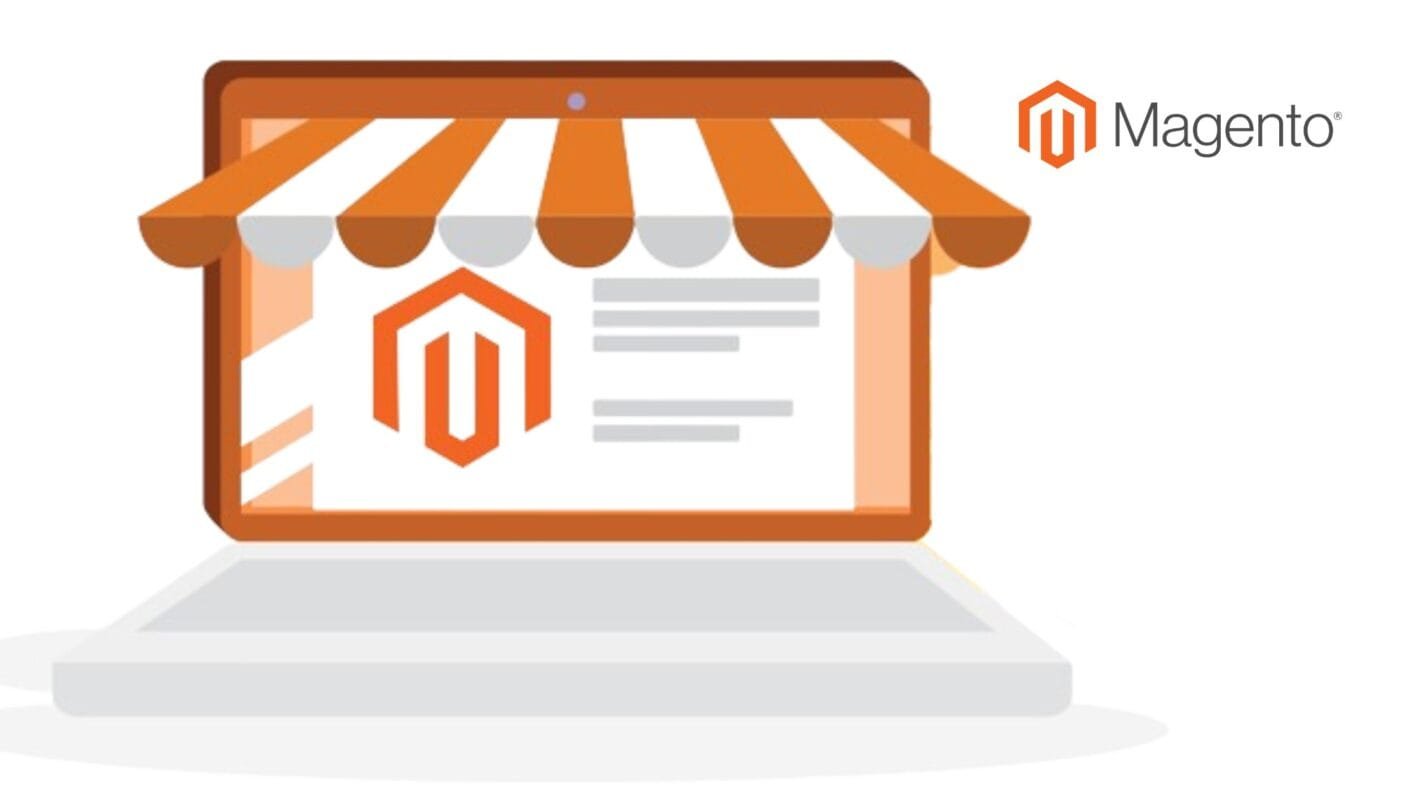Custom Plugin Development: Adding New Functionalities to Online Stores

In today’s fast-paced digital era, online stores must continuously evolve to stay competitive. One powerful way to achieve this is through custom plugin development. Custom plugins allow eCommerce platforms to unlock new functionalities, enhance user experiences, and streamline operations tailored precisely to your business needs. Whether you’re planning to create a business website from scratch or upgrade an existing platform, this comprehensive guide will walk you through the benefits of custom plugin development, the process behind it, and how to hire the right experts—from front end web developers to expert Shopify developers—to bring your vision to life.
Why Custom Plugin Development Matters
Traditional off-the-shelf solutions often come with limitations that can hinder your online store’s growth. Custom plugins overcome these restrictions by offering flexibility, scalability, and unique features that set your platform apart. Here’s why investing in a custom plugin is a game-changer:
- Tailored Functionality: Custom plugins can integrate unique features that directly address your business challenges.
- Enhanced Performance: Optimize backend processes for a smoother shopping experience.
- Improved SEO: Integrate tools that boost your website design and SEO services, helping your site rank higher.
- Scalability: As your business grows, custom plugins grow with you—integrating new functionalities without overhauling your entire system.
- Robust Security: Custom solutions are developed with your security requirements in mind, reducing vulnerabilities.
Custom plugin development is not just a technical upgrade; it’s a strategic investment that differentiates your online store and drives customer satisfaction.
Key Benefits for Online Stores
Tailored Functionality for Unique Business Needs
Custom plugins are designed with your specific requirements at their core. They offer features that generic platforms might overlook, such as:
- Personalized Customer Experiences: Create custom shopping journeys with unique product recommendations and loyalty programs.
- Operational Efficiency: Automate repetitive tasks like inventory management and payment processing.
- Competitive Differentiation: Stand out by incorporating exclusive features—be it a custom discount engine or a bespoke reporting tool.
By partnering with professionals—whether you choose to hire web developers, hire a designer, or engage with freelance website designers—you ensure that your custom plugin aligns perfectly with your operational goals and brand aesthetics.
Enhanced SEO and Digital Marketing
Modern online stores require more than just an appealing interface; they need robust SEO capabilities to drive organic traffic. Custom plugins can be optimized for:
- Speed and Mobile Responsiveness: Critical factors that search engines evaluate for higher rankings.
- User Engagement: Interactive and intuitive features that keep visitors on your site longer.
- Integrated Marketing Tools: Seamless integration with social media, email marketing platforms, and analytics tools.
When you invest in website and application development, you’re not just building a site—you’re creating an ecosystem that supports long-term digital marketing and SEO success.
Scalability and Flexibility
As market demands evolve, so do the requirements of your online store. Custom plugins offer the flexibility to:
- Add New Features: Whether it’s integrating an AI-driven recommendation system or enabling multichannel selling, your plugin can adapt to future needs.
- Support Increased Traffic: Scalable architecture ensures your site performs well, even during traffic surges.
- Facilitate Omnichannel Integration: Seamlessly connect your online platform with physical stores, social media channels, and third-party applications.
This flexibility is critical for businesses aiming to maintain an edge in a dynamic digital marketplace.
Robust Security and Enhanced Performance
Security breaches can have a devastating impact on online stores. Custom plugins are built with a keen focus on:
- Data Protection: Implementing advanced security protocols to safeguard customer information.
- Performance Optimization: Ensuring faster load times and a smoother user experience through efficient coding practices.
- Ongoing Updates: Regular maintenance and updates to address vulnerabilities and adapt to new security standards.
These factors not only protect your business but also contribute to a seamless shopping experience that builds customer trust.
The Custom Plugin Development Process
Understanding the stages of custom plugin development can help you set realistic expectations and work effectively with your development team. Here’s a detailed look at the process:
1. Requirement Gathering and Planning
Before development begins, it’s essential to clearly define your project’s scope:
- Identify Business Needs: Document specific challenges and the custom features you want to integrate.
- Outline Technical Requirements: Determine how the plugin should interact with your existing platform.
- Set Objectives: Establish clear goals regarding performance, user experience, and security.
This initial phase is crucial, whether you’re looking to make an app for your website or add advanced functionalities to an existing system.
2. Design and Prototyping
With clear requirements in hand, the design phase begins:
- Wireframes and Mockups: Visual representations created by your website designer hire or hire web designer help conceptualize the plugin.
- User Experience (UX): Prioritize intuitive design, ensuring that users can easily navigate and engage with the new features.
- Feedback Loop: Iterate on the design with input from stakeholders to refine the user interface and overall functionality.
This phase ensures that your custom plugin is not only functional but also aesthetically aligned with your brand.
3. Development and Coding
The development stage is where the custom plugin comes to life:
- Front End Development: Front end web developers craft an engaging and responsive user interface.
- Back End Development: Application developers build the server-side logic that drives the plugin’s features.
- Seamless Integration: The plugin is integrated with your existing eCommerce platform—be it Shopify, WooCommerce, or Magento—ensuring smooth operation across systems.
Expert developers, including expert Shopify developers and Plugin Developer experts, ensure the final product meets high coding standards and functions flawlessly.
4. Testing and Quality Assurance
Before deployment, rigorous testing is conducted to guarantee reliability:
- Functional Testing: Verifies that every feature operates as intended.
- Performance Testing: Assesses the plugin’s impact on site speed and responsiveness.
- Security Testing: Identifies vulnerabilities and ensures robust data protection.
- User Acceptance Testing (UAT): Collects feedback from a select group of users to fine-tune usability.
This stage is vital for ensuring that the plugin enhances the overall customer experience while maintaining optimal performance.
5. Deployment and Maintenance
After thorough testing, the plugin is ready to go live:
- Smooth Launch: Careful planning ensures minimal downtime during deployment.
- Ongoing Support: Continuous maintenance is essential for addressing bugs, implementing updates, and adapting to evolving business needs.
- Feedback-Driven Iteration: Regularly updating the plugin based on user feedback keeps your online store innovative and competitive.
Long-term support and regular updates are crucial for the sustained success of your custom solution, making it a robust asset for your online business.
How to Hire the Right Experts
The success of your custom plugin development project depends on the team behind it. Here are some strategies to ensure you choose the best professionals:
Define Your Requirements
Clearly outline what you need:
- Detail the custom features and integrations required.
- Identify specific challenges your online store faces.
- Establish clear performance, security, and usability goals.
Having a well-documented plan ensures that potential hires understand your vision and can deliver accordingly.
Research and Shortlist Candidates
Explore portfolios and reviews to find professionals with a strong background in custom plugin development:
- Online Portfolios: Evaluate the past projects of hire website developers and hire web designers.
- Freelance Platforms: Look for highly-rated freelance web developers and website freelance developers.
- Referrals: Seek recommendations from your professional network.
Consider candidates with proven expertise in Plugin Development for ecommerce website and web application development to ensure quality and reliability.
Evaluate Technical Skills and Experience
Assess the technical capabilities of your candidates:
- Experience with custom plugin development and integration.
- Proficiency in relevant programming languages and frameworks.
- Knowledge of modern web standards and security protocols.
Request case studies or examples of previous work, especially from Shopify expert developers and Plugin Developer experts, to verify their expertise.
Emphasize Communication and Project Management
Effective communication is key to project success:
- Ensure the candidate understands your requirements.
- Confirm they can provide clear timelines, milestones, and regular updates.
- Look for teams that are experienced in agile methodologies, which foster collaboration and flexibility.
Clear communication and a strong project management approach will help you seamlessly hire web developers or hire a designer who can work efficiently with your in-house team.
Consider Long-Term Partnerships
Custom plugins require ongoing maintenance and updates:
- Choose professionals who offer long-term support.
- Look for service packages that include regular updates, bug fixes, and scalability improvements.
- Ensure they understand your strategic business goals to provide solutions that remain relevant over time.
A long-term partnership with your development team will ensure that your online store remains cutting-edge and competitive in a rapidly evolving market.
Real-World Success Stories
Transforming a Niche Boutique
A niche boutique sought to differentiate itself by offering personalized shopping experiences and exclusive loyalty programs. By partnering with expert Shopify developers and Plugin Developer experts, they built a custom plugin that:
- Integrated advanced AI-driven product recommendations.
- Offered personalized discount programs based on user behavior.
- Streamlined the checkout process, leading to higher conversion rates.
This transformation not only enhanced customer satisfaction but also improved SEO performance, illustrating how tailored functionalities can create one of those cool ecommerce websites that truly stand out.
Enhancing a Multi-Channel Retailer’s Efficiency
A multi-channel retailer with an extensive product catalog needed a robust solution to manage inventory across various channels. They decided to hire web developers specializing in web application development to create a custom plugin that:
- Synchronized inventory data between online and physical stores.
- Integrated real-time tracking with third-party logistics.
- Provided comprehensive analytics to support data-driven decision-making.
The result was a streamlined process that reduced inventory errors and improved customer satisfaction—demonstrating how a custom solution can drive operational excellence while supporting ecommerce site design that is both functional and engaging.
Emerging Trends and Future Directions
Custom plugin development is evolving rapidly, influenced by emerging technologies and shifting consumer behaviors. Here are some trends shaping the future of eCommerce plugins:
Mobile-Responsive and Progressive Web Apps
With mobile traffic dominating the online landscape, custom plugins must be designed with a mobile-first approach:
- Progressive Web Apps (PWAs): Deliver app-like experiences through mobile browsers.
- Responsive Design: Ensure that plugins work seamlessly across all devices.
- Enhanced Mobile Functionality: Focus on speed and user experience, crucial for retaining mobile shoppers.
Artificial Intelligence and Machine Learning
AI and ML are transforming eCommerce by enabling personalized experiences and smart automation:
- Chatbots and Virtual Assistants: Integrate AI-powered tools for customer support.
- Predictive Analytics: Utilize machine learning to forecast trends and personalize recommendations.
- Personalization Engines: Offer tailored shopping experiences that boost conversion rates.
Omnichannel Integration
Consumers expect a unified shopping experience across online and offline channels:
- Seamless Integration: Connect your online store with social media, mobile apps, and physical outlets.
- Unified Customer Experience: Ensure that the customer journey is consistent and engaging regardless of the channel.
- Multi-Currency and Payment Solutions: Adapt to global market needs with secure, versatile payment options.
Data-Driven Decision Making
Harnessing data is crucial for continuous improvement:
- Advanced Analytics: Incorporate detailed reporting tools in your plugin.
- Customer Insights: Leverage data to understand purchasing behaviors and refine your strategies.
- Real-Time Data: Enable real-time monitoring to make agile business decisions.
Tips for Maintaining and Evolving Your Custom Plugins
Regular Updates and Maintenance
Custom plugins are not a one-time solution—they require ongoing support:
- Scheduled Updates: Regularly update the plugin to maintain compatibility with evolving platforms.
- Bug Fixes: Promptly address any issues to ensure seamless functionality.
- Performance Reviews: Continuously monitor the plugin’s performance and make necessary optimizations.
Iterative Improvements Based on Feedback
User feedback is invaluable:
- Feedback Systems: Implement tools to gather and analyze user input.
- Agile Iteration: Use feedback to refine and enhance plugin functionalities.
- Collaboration with Experts: Work closely with your freelance web developers or website designer hire to integrate new features that align with customer needs.
Planning for Future Growth
As your business expands, your plugin should evolve:
- Modular Architecture: Design the plugin with scalability in mind.
- Future-Proofing: Incorporate flexible APIs and integration points for new technologies.
- Ongoing Support: Engage with development teams that offer long-term maintenance and updates.
Strategic Considerations for Online Store Owners
Evaluating the ROI of Custom Plugins
Investing in custom plugin development can yield significant long-term benefits:
- Increased Sales: Enhanced functionalities lead to improved user engagement and higher conversion rates.
- Operational Efficiency: Automation reduces manual errors and streamlines business processes.
- Brand Differentiation: A unique online experience helps your brand stand out in a crowded market.
Building Long-Term Partnerships
The success of your custom plugin is closely tied to the quality of your development team:
- Choose partners who provide ongoing support and understand your business vision.
- Engage with experts who can evolve your platform as market demands change.
- Focus on long-term relationships rather than one-off projects, ensuring sustained success.
Future-Proofing Your Online Store
Technology is constantly evolving. Ensure that your online store remains competitive by:
- Investing in a design that supports both website and application development.
- Incorporating long-term trends such as mobile responsiveness, AI integration, and omnichannel connectivity.
- Staying proactive about security updates and performance optimizations.
Final Thoughts
Custom plugin development is a transformative strategy for any online store seeking to deliver a superior user experience, drive sales, and remain competitive in today’s digital marketplace. By investing in custom solutions, you’re not just adding features; you’re building a scalable, secure, and innovative platform that evolves with your business.
From the initial stages of requirement gathering and design to development, testing, deployment, and ongoing maintenance, every step is crucial. Whether you choose to hire web developers, hire a designer, or collaborate with freelance website designers, partnering with experts like expert Shopify developers, front end web developers, and Plugin Developer experts ensures that your custom plugin meets the highest standards of performance and functionality.
Embracing emerging trends—such as mobile-responsive design, AI-powered personalization, and omnichannel integration—will further enhance your store’s competitive edge. Regular updates, user feedback, and long-term support are key to maintaining a robust, innovative online platform.
Invest in custom plugin development to transform your online store into one of those cool ecommerce websites that not only attracts visitors but also converts them into loyal customers. Whether you’re starting from scratch or upgrading an existing platform, a custom plugin is the cornerstone of a modern, efficient, and customer-centric eCommerce solution.
So, if you’re ready to create a business website that stands out, to make an app for your website with next-level functionality, and to tap into the expertise of hire web developers and freelance website designers, now is the time to invest in custom plugin development. The digital marketplace is evolving—ensure your online store is ahead of the curve and fully equipped to meet the demands of tomorrow.






